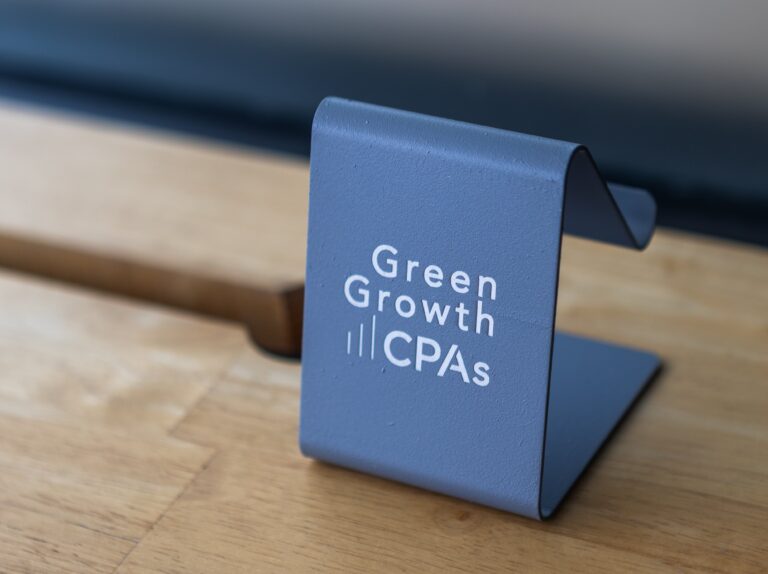This article continues our series on end of year tax planning and examining tax incentives business owners can leverage.
As the financial year ends, businesses and individuals can reduce their tax liabilities by managing cash flow through deferring income and accelerating expenses. This maximizes tax savings and improves financial health.
Understanding Cash Flow
To put things into perspective, cash flow refers to the movement of money into and out of your business or personal finances. A positive cash flow indicates that your income exceeds your expenses, while a negative cash flow implies the opposite. Hence, cash flow management involves tax strategies aimed at optimizing this balance, including deferring income and accelerating expenses.
Deferring Income: A Strategic Move
One of the primary techniques to manage cash flow involves postponing income. This strategy can affect your tax liability in two ways. Firstly, reducing your income might place you in a lower tax bracket, resulting in a reduced tax rate for the current year. Secondly, a lower income can make it easier to meet the 2% floor required for certain deductions.
There are several scenarios where deferring income becomes advantageous. If you expect to be in a lower tax bracket next year, it is wise to postpone your income this year. This can be due to reasons such as retirement, unemployment, or anticipated business difficulties.
By doing so, you can defer paying taxes on that income until the following year. This strategy allows you to reduce your overall tax burden.
How to Postpone Income
There are numerous ways to defer your income. Here are some strategies to consider:
Delay Collections
If you’re self-employed, you can postpone income by delaying the collection of money owed to you. To achieve this, send invoices at the end of December so you get paid in the next year.
Defer Compensation and Year-End Bonuses
For those employed, it might be possible to have your employer delay some of your pay until the following year. Similarly, if you’re eligible for a year-end bonus, your employer could postpone the bonus until early the next year.
Hold on to Your Incentive Stock Options
If your employer grants you qualified incentive stock options (ISOs), you can defer income tax and capital gains tax by holding on to the options and/or the stock for as long as permitted.
Maximize Retirement Plan Contributions
By contributing the maximum amount allowable to certain retirement plans, you can reduce your Adjusted Gross Income (AGI), assuming all applicable requirements are met.
Use Like-Kind Exchanges
Typically, you can defer recognition of capital gain or loss if you trade business or investment property for other business or investment property of a “like kind.”
Ask for Installment Payments on Sales
If you’re planning to sell property, receiving the payments in installments over the next few years instead of all at once can help defer recognition of some of the capital gain on the sale.
Accelerating Deductions: The Other Side of the Coin
Conversely, accelerating deductions refers to the strategy of claiming expenses earlier. The idea is to incur deductible expenses in the current tax year rather than in the subsequent one.
Bunching Deductions
One of the ways to accelerate deductions is through ‘bunching’. This technique allows you to adjust the timing of your expenses so they’re high in one year (when you itemize) and low in the next (when you take the standard deduction).
Prepaying Expenses
Prepaying expenses that you expect to incur in the 12 months after payment can result in a reduction of the current year’s taxable income.
The 12-Month Rule and Other Tests
For prepaid expenses to be deductible, certain conditions must be met. For cash basis taxpayers, the 12-month rule allows for the deduction of a prepaid expense in the current year if the benefit does not extend beyond 12 months from the date of prepayment or the end of the taxable year following the year in which the payment is made.
For accrual basis taxpayers, the rules are more complex, involving the “all events test” and the “economic performance test.” These tests require that the obligation to pay is fixed, the cost is determinable, and the prepaid services or property are actually provided to the taxpayer.
Opportunities for Tax Savings
The aforementioned strategies can be particularly advantageous for businesses. If prepaid expenses were not accelerated in the past, there could be opportunities to do so this year. Adopting such strategies in the initial year of a business can result in substantial tax savings.
However, if prepaid expenses were capitalized in the past, a method of accounting has already been established. To start accelerating prepaid expenses, the IRS requires filing Form 3115 to change the accounting method.
Consulting a Tax Professional
While these tax strategies can lead to substantial tax savings, they should not be implemented without consulting a tax professional. A proforma draft of your next year’s income tax return can help you understand how these actions will affect your tax liability. Remember, every financial decision has its implications, and it’s crucial to make informed decisions.
Conclusion
Managing cash flow can be a powerful tool for achieving tax savings. By strategically deferring income and accelerating expenses, businesses and individuals can optimize their financial health while minimizing tax liabilities. However, it’s vital to understand the nuances of these strategies and to consult a tax professional before implementation.
At GreenGrowth CPAs, we believe in empowering our clients with informed business decisions. Our communication style emphasizes accessibility, accuracy, and advocacy, offering a sense of security and commitment to business growth. If you have questions regarding your year-end tax planning, our experts are glad to help.





